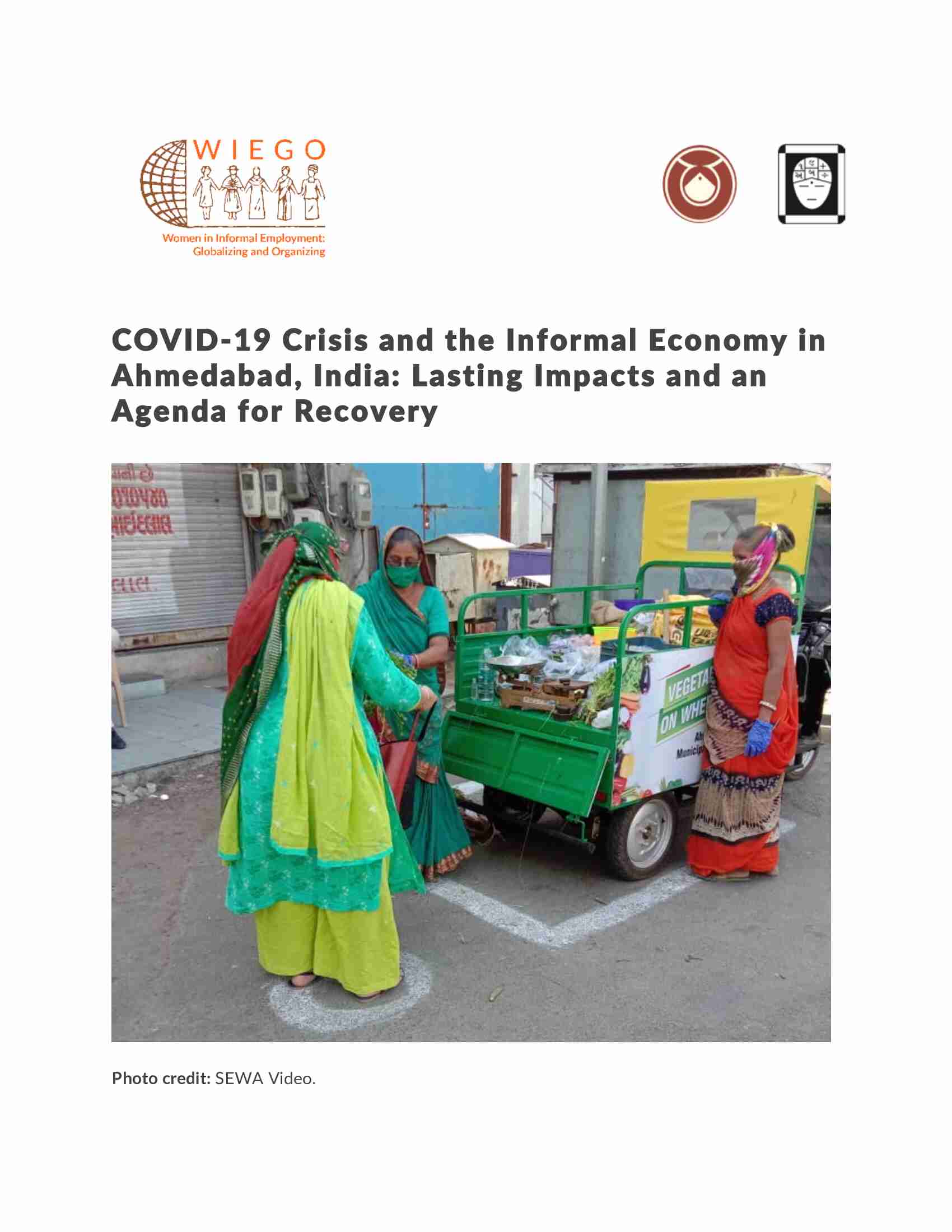COVID-19 Crisis and the Informal Economy in Ahmedabad, India: Lasting Impacts and an Agenda for Recovery
The study sample in Ahmedabad – the largest city and financial capital of Gujarat State in Western India – included domestic workers, home-based workers, street vendors and waste pickers: all women and all SEWA members. This report presents the Ahmedabad findings from Round 2 of the WIEGO-led COVID-19 Crisis and the Informal Economy study that was conducted in mid-2021 to assess how specific groups of informal workers and their households were experiencing COVID-19 resurgences and ongoing economic strains, and to what extent (if any) they had recovered.
Key Findings
In August 2021, 80% of respondents were able to work (at least part time) in the previous month, compared to 48% in mid-2020 and 7% in April 2020.
During August 2021, the respondents worked 3.9 days per week on average compared to 0.3 in April 2020, 2.4 in mid-2020 and 6.2 days per week in February 2020 (pre-COVID-19).
Since August 2020, 41% of the respondents were not able to find work for 10 days during one month or more.
The main reasons cited for the insecurity of work were government restrictions on mobility and activities (49%), market and supply chain dynamics (24%), and health concerns (16%).
During August 2021, the average daily gross earnings of all respondents (INR180) were more than twice what they earned in mid-2020 (INR80) but only 77% of what they earned in February 2020 (INR244). And 32% of all respondents had zero income in August 2021.
During August 2021, 27% of respondent households had adult members who experienced hunger and 13% of respondent households with children under 16 reported hunger among children, compared to 36% and 30%, respectively, in August 2020.
During August 2021, nearly half of the respondents or other household members had skipped a meal and eaten a smaller variety of foods than they would have in normal times.
Since August 2020, 24% of the respondents had received some cash relief and 75% had received some food aid from government, compared to 42% and 84%, respectively, between April and July 2020.
Since August 2020, a somewhat higher percentage of respondent households (85%) had to resort to negative coping strategies to deal with the on-going crisis than had to in 2020 (80%) to deal with the early phase of the crisis.
View list of all: City/Country Level Reports

